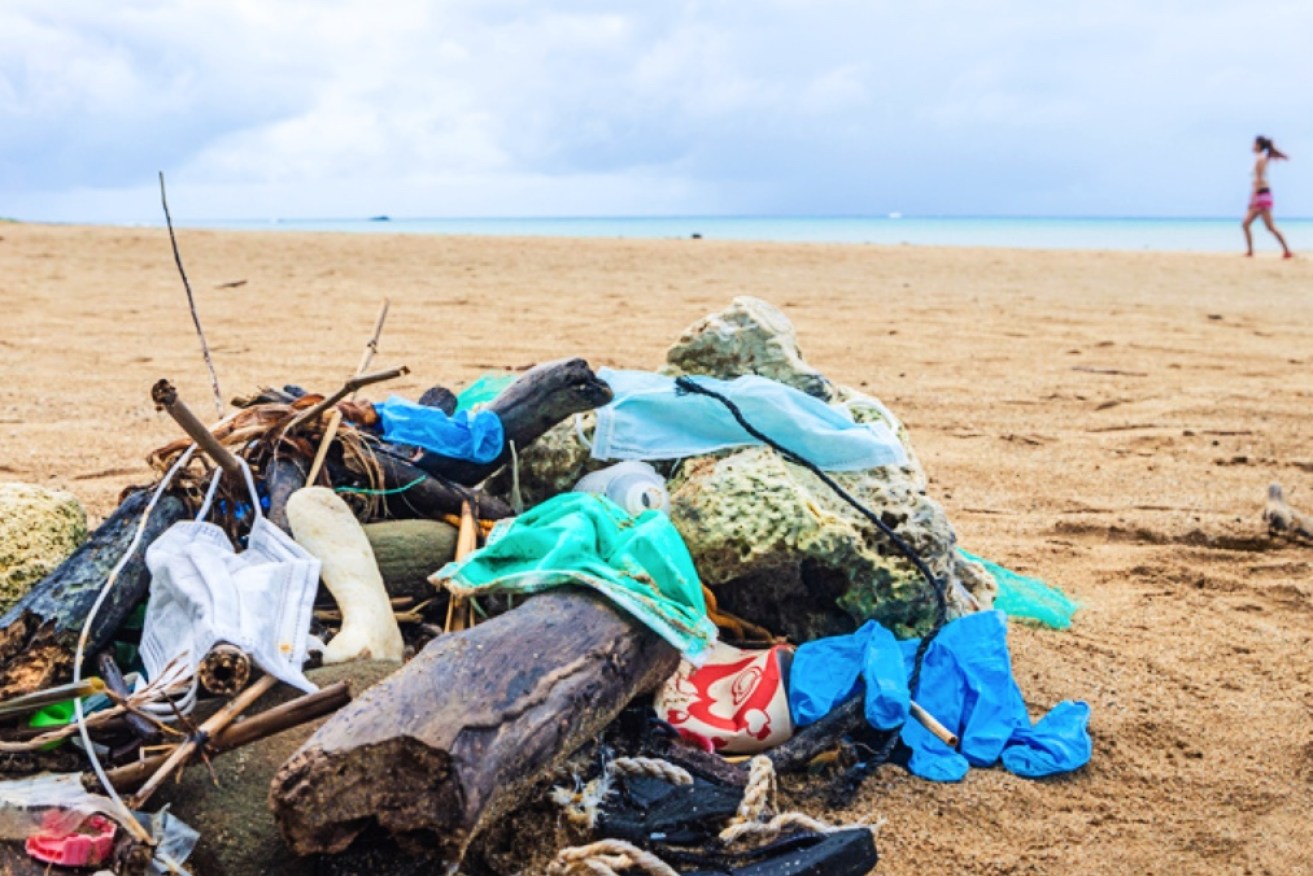Billions of discarded face masks are another symptom of the COVID pandemic


Synthetic masks are a growing blight on land in the sea. Photo: Getty
The COVID-19 pandemic’s toll extends beyond its human casualties, environmental campaigners say, pointing to the billions of discarded face masks as further symptoms of the coronavirus.
More than three billion single-use masks were discarded across the globe every day during 2020, contributing to a major portion of the pandemic-related rubbish entering the environment.
However, while used face masks are a common sight across Australia, the specific extent of the problem remains unclear.
To help ‘unmask’ the issue, Clean Up Australia is asking volunteers as they set out to do their bit for the planet on Sunday, March 6, to tally the number of face masks they collect.
Chair Pip Kiernan says there’s no doubt quantities of plastic waste have been surging because of COVID-19 but there is no available data to confirm the number of used face masks out there.
“We can’t cover up the problem – now is the time to act,” she said.
“Our environmental issues have not gone away because of COVID, rather, they have escalated because of the mountain of rubbish we’ve created.”
Everyone registered to take part in clean-up day can also participate in the mask count.
Free gloves and bags
All are covered by the organisation’s public liability insurance while community and school groups will receive free gloves and bags – businesses are asked to pay a small fee to cover costs.
Worryingly, plastics in disposable masks can take up to 450 years to break down, with researchers warning littered single-use models could be releasing chemical pollutants and nano-plastics into the environment.
Over the past two years there have also been cases of seabirds and wildlife found tangled in them.
Ms Kiernan says the next generation of PPE equipment should be designed not only for safety but to have the lowest environmental footprint possible.
“Urgency is required to be more creative in the design of these products with the environment right up there in our thinking,” she said.
“This concept of product stewardship – when we design a product and consider what happens to it at the end of its life – needs to be addressed at the outset.”
Signing up early to help on March 6 is critical so the charity has enough time to process applications and deliver gloves and bags to households across Australia.
Participants will be provided with online access to record the number of masks they collect on a national database.
Australians can register or donate at cleanup.org.au
-with AAP








